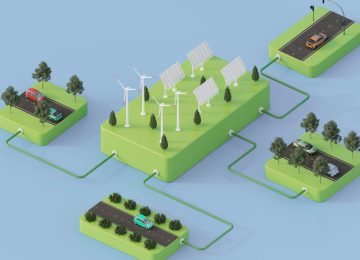Emerging economies face a significant challenge in their energy transition. It is challenging to ensure vulnerable workers and communities do not fall behind, even as new job opportunities emerge.
A recent report released by the Institute for Energy Economics and Financial Analysis (IEEFA) highlights how targeted co-financing can enable a “Just Transition” in these nations, aligning with national decarbonization goals, net-zero targets, and Nationally Determined Contributions while prioritizing local development.
The IEEFA report emphasizes that supporting a Just Transition requires not only large-scale capital for renewables, but also specific financing for communities and small businesses.
“Combining climate action with social equity can facilitate the energy transition in emerging markets and developing economies (EMDEs) without disrupting sectors that rely solely on fossil fuels,” stated Shantanu Srivastava, IEEFA’s research lead for sustainable finance and climate risk, and a co-author of the report.
While fossil fuel industries possess the resources to adapt to an evolving energy landscape, governments face the greater risk of entire communities becoming stranded by the closure of operations they depend on.
Srivastava added, “The financing challenge is not only about scale, but also about targeting suitable forms of capital for the right activities based on their risk-return profiles and developmental impact.”
The report advocates a “co-investment” approach for these asset closures, which combines financing for energy transition assets such as renewable energy with Just Transition activities.
Soni Tiwari, an energy finance analyst at IEEFA and co-author, said, “Just Transition activities encompass a mix of hard energy transition assets, such as renewable energy, climate-smart agriculture, and climate-resilient infrastructure. Also, “softer” Just Transition aspects like responsible coal asset closures, stakeholder capacity building, labor reskilling, support for micro, small and medium enterprises (MSMEs), and community resilience.”
The report draws on compelling case studies from India, the Philippines, Ethiopia, and South Africa, showcasing how strategically planned, targeted, and coordinated interventions prepare vulnerable communities for a low-carbon future.
However, it also cautions against the pitfalls of inadequate planning and community consultation.
Examples from the report
The Philippines’ Accelerating Coal Transition (ACT) investment plan demonstrates how securing early grant commitments for Just Transition aspects mobilizes additional concessional and commercial capital for fossil fuel asset closure and repurposing.
South Africa’s Just Energy Transition Investment Plan (JET-IP) highlights the importance of institutional coordination, robust governance frameworks, and dedicated funding platforms that connect funders and project developers.
In India, a targeted program for MSMEs successfully coordinated investment from domestic, multilateral, and philanthropic institutions in policy reform, technical assistance, and scalable clean energy solutions for MSMEs.
India’s Zero-Budget Natural Farming (ZBNF) program exemplifies how targeted investments in capacity building create a self-sustaining, low-carbon business model for farmers in vulnerable communities.
Ethiopia’s rural water program, financed by the United Nations Green Climate Fund (GCF), underscores the value of grant-based financing in fragile contexts and empowers local institutions to mainstream climate action.
By strengthening monitoring systems, aligning national schemes, and fostering partnerships, emerging economies can more easily access funding and strive for a sustainable energy transition.













